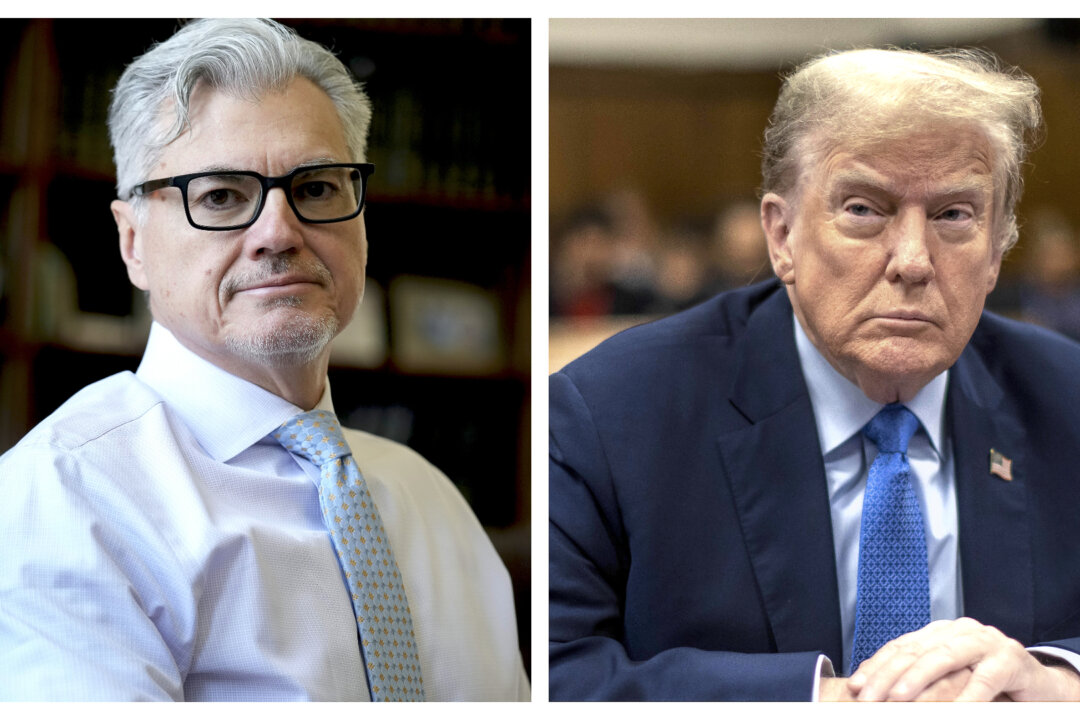The request was made days after a New York judge delayed Trump’s sentencing until after the November election.
Former President Donald Trump on Sept. 9 asked a federal appeals court to issue a pause in his New York criminal case, after a state judge delayed the sentencing until after the November election.
Justice Juan Merchan, of the New York State Supreme Court in New York County, last week delayed the sentencing from Sept. 18 to Nov. 26, months after a Manhattan jury found the former president guilty of falsifying business records.
Days later, Trump’s attorneys wrote to the U.S. Court of Appeals for the Second Circuit stating that the case should be paused because Merchan’s order doesn’t “allow adequate time for interlocutory” appeals, citing the U.S. Supreme Court’s presidential immunity ruling in July. The high court found that presidents are immune from prosecution for official acts while in office.
“Because of the significance of the Presidential immunity doctrine, the federal government and the public share an interest in that outcome—even if these novel and complex issues are to be addressed after the 2024 Presidential election,” Trump attorneys Emil Bove and Todd Blanche wrote to the appeals court.
They added that Trump’s capacity to seek an appeals court “review of the district court’s ruling would be irreparably harmed, in the absence of a stay, because Justice [Merchan] could move forward with sentencing and a ‘judgment of conviction’ before the appeal is resolved.”
“While President Trump defers to the Court regarding whether an administrative stay is appropriate, a stay … is still necessary to preserve the status quo,” their letter reads.
In the May trial, Trump became the first current or former president to be convicted of a felony crime after prosecutors alleged that he falsified business records in 2016 related to payments made to an attorney that were later sent to an adult performer. Further, they said that those payments were allegedly concealed to influence that year’s election, which Trump won.
The former president pleaded not guilty to the charges, claiming that they were brought against him to interfere with the 2024 election.
In Merchan’s decision last week, he wrote that the sentence must be adjourned to avoid the appearance that it has been affected by the upcoming November presidential election, in which Trump is the Republican nominee.
“Adjourning decision on the motion and sentencing, if such is required, should dispel any suggestion that the Court will have issued any decision or imposed sentence either to give an advantage to, or to create a disadvantage for, any political party and for any candidate for any office,” he wrote in a letter to prosecutors and Trump’s legal team.
Praising the jury, Merchan said that the public’s “confidence in the integrity of our judicial system” is contingent on having a “sentencing hearing that is entirely focused on the verdict of the jury and the weighing of aggravating and mitigating factors free from distraction or distortion.”
The former president still faces outstanding legal issues in other jurisdictions. After the Supreme Court’s immunity decision, an election interference-related case brought in Washington by special counsel Jack Smith was restarted in August.
Last week, at a court hearing, U.S. District Judge Tanya Chutkan said the presidential race will have no impact on the schedule of the criminal proceedings.
“The electoral process and the timing of the election … is not relevant here,” Chutkan said. “This court is not concerned with the electoral schedule.”
In July, a federal judge in Florida dismissed a separate case brought by Smith that accused the former president of illegally retaining classified records at his Mar-a-Lago property. Smith has since appealed the judge’s decision, which found that he was unlawfully appointed as special counsel.
A case brought by Fulton County, Georgia’s district attorney has remained in limbo after Trump and multiple co-defendants filed an appeal in a bid to remove District Attorney Fani Willis amid allegations of impropriety, which she has denied.

